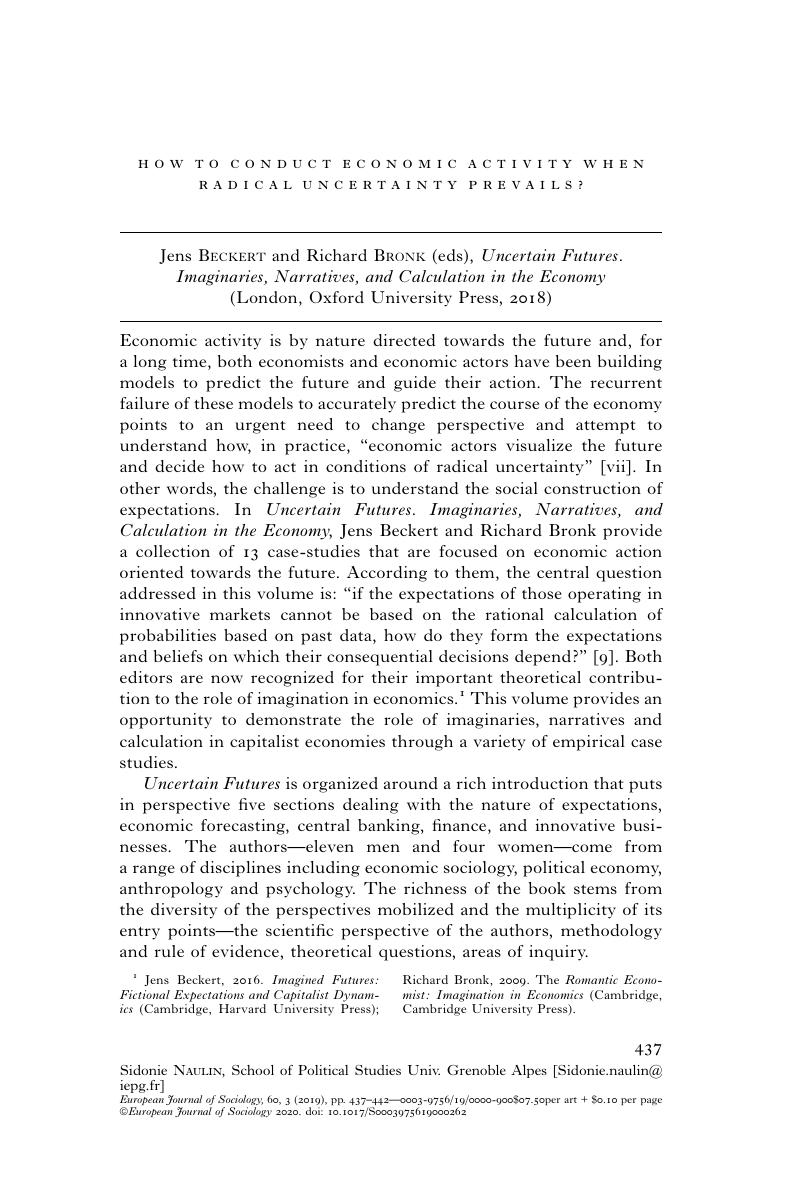No CrossRef data available.
Article contents
How To Conduct Economic Activity When Radical Uncertainty Prevails? - Jens Beckert and Richard Bronk (eds), Uncertain Futures. Imaginaries, Narratives, and Calculation in the Economy (London, Oxford University Press, 2018)
Published online by Cambridge University Press: 14 February 2020
Abstract

- Type
- Book Reviews
- Information
- European Journal of Sociology / Archives Européennes de Sociologie , Volume 60 , Issue 3 , December 2019 , pp. 437 - 442
- Copyright
- Copyright © A.E.S. 2020
References
1 Jens Beckert, 2016. Imagined Futures: Fictional Expectations and Capitalist Dynamics (Cambridge, Harvard University Press); Richard Bronk, 2009. The Romantic Economist: Imagination in Economics (Cambridge, Cambridge University Press).
2 John Maynard Keynes, 1936. The General Theory of Employment, Interest and Money (London, Macmillan and Co).
3 Karin Knorr Cetina, 1999. Epistemic Cultures: How the Sciences Make Knowledge (Cambridge, Harvard University Press).
4 Niklas Luhmann, 1976. “The Future Cannot Begin: Temporal Structures in Modern Society”, Social Research, 43 (1): 130-152.
5 Zeev Rosenhek, 2013. “Diagnosing and Explaining the Global Financial Crisis: Central Banks, Epistemic Authority, and Sense Making,” International Journal of Politics, Culture, and Society, 26(3): 255-272.
6 Henri Hubert and Marcel Mauss, [1972] 1902. A General Theory of Magic (London, Routledge).




